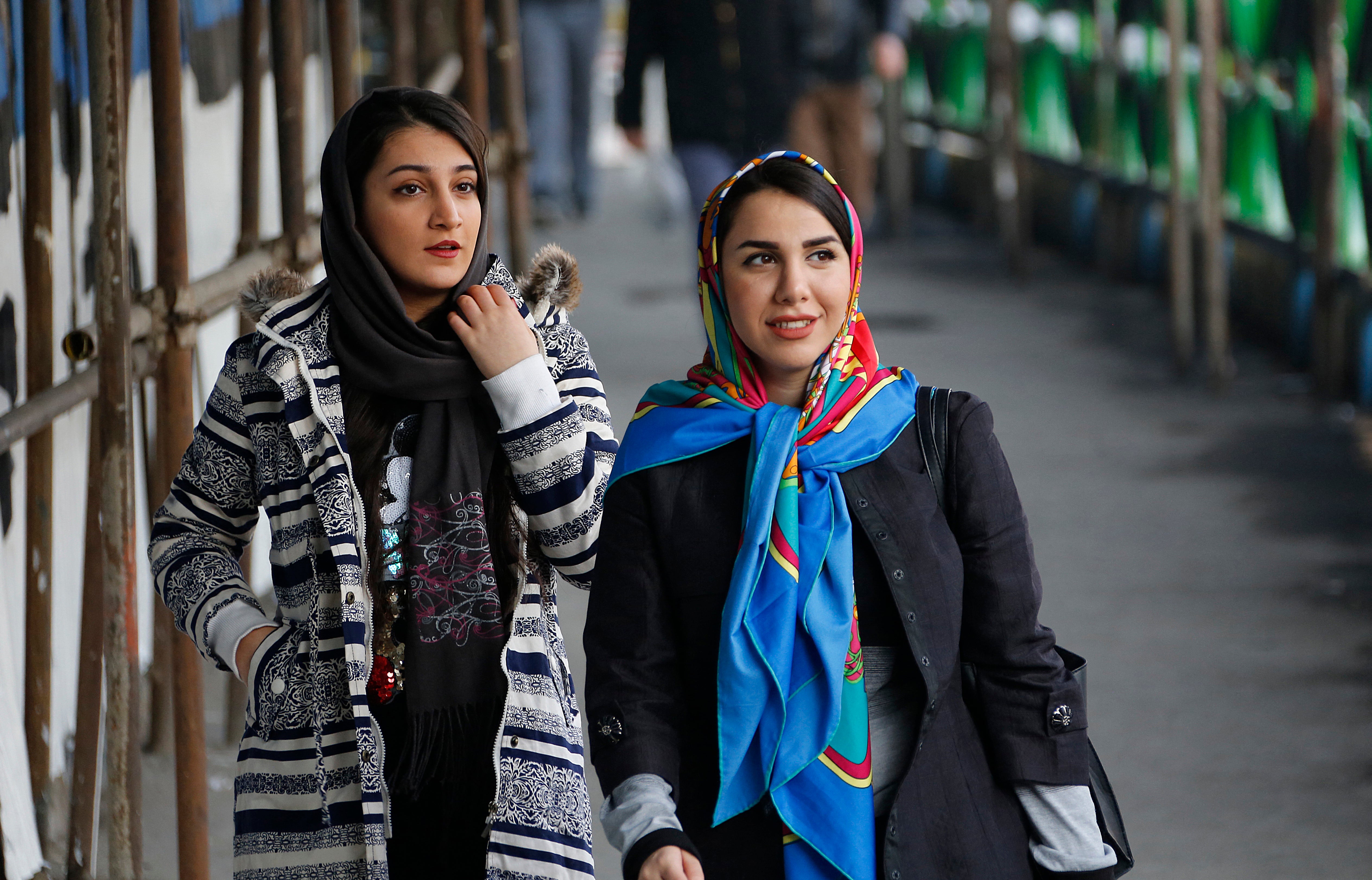Iranian women removing headscarves to protest mandatory hijab laws
‘This sort of authoritarianism is out of step with the outlook of much of the youth in Iran,’ says Amnesty International

Iranian women are sharing photos of themselves taking off their hijabs to demonstrate opposition to strict rules which ban women from showing their hair in public.
The authorities announced 12 July as “Hijab and Chastity Day” - meaning events will be held to champion rules which force women to wear the hijab.
While women in Iran are protesting the day by removing their headscarf, men are showing solidarity with them.
Women’s rights are stringently restricted in Iran and wearing a headscarf is compulsory in public for all women there – with those who do not wear a hijab, or have some of their hair on display while wearing a hijab, facing punishments ranging from fines to imprisonment.
Authorities' decision to declare Tuesday “Hijab and Chastity Day” comes in the context of the Islamic Republic staging an operation to force women to wear the hijab – labelling women, many of whom are young, who infringe the rules as “bad-hijab”.
The so-called “morality police” have been arresting women in the crackdown – with reports some officials have demanded public transport workers, as well as staff in government offices, and banks ignore so-called “bad-hijab” women. While medical settings and universities in some Iranian cities have been monitored by the “morality police” to ensure women are keeping their heads covered.
Allan Hogarth, of Amnesty International, a leading global human rights organisation, told The Independent: “Iran has a long and appalling record of persecuting women who are simply exercising their right to choose what to wear.
“The brave women who are currently taking a stand against these sexist laws, know the risks they are undertaking. Three young Iranian women; Monireh, Yasaman and Mojgan are currently serving more than 30 years in prison simply for handing out flowers to female passengers on a metro train in Tehran whilst unveiled.
“The women were filmed, sharing their hopes for a future where all women in Iran would have the freedom to choose what to wear.”
Mr Hogarth warned days after the footage “went viral” online, the women “were charged with sham offences including ‘inciting prostitution’ for choosing not to wear veils”.
He added: “This sort of persecution violates basic human rights and the moral police are likely to find that this sort of authoritarianism is out of step with the outlook of much of the youth in Iran.”
While Dima Dabbous, of Equality Now, a global NGO, argued women must be allowed to dress as they wish rather than “be treated as criminals by the state for the simple act of appearing in public with their hair uncovered”.
She added: “This is a fundamental violation of their human rights - including their right to freedom of expression, belief, and equality - and is an extreme form of gender discrimination.
“The Imam of Tehran, Ayatollah Ahmad Khatami, has said that a woman who defies the government’s mandatory hijab laws is committing a sin that is comparable to stealing or embezzling. This is totally untrue, this is not the word of God, nowhere in the Quran or religious scriptures does it say this.”
Ms Dabbous warned the “increasingly hardline crackdown on enforcing women to wear a hijab” in the country is “another example of the rise of religious extremism in the region” which sees religion “misused as a tool of oppression to subdue women and girls”.
A rally is due to be held in Azadi Stadium, a football stadium in the Iranian capital of Tehran, with the express aim of urging women to keep their heads covered.
Masih Alinejad, an Iranian-American journalist and women’s rights activist, tweeted: “Iranian women will shake the clerical regime by removing their hijab and taking to the streets across Iran to say #No2Hijab. This is called Women Revolution. In iran #WalkingUnveiled is a crime. Iranian men will also join us.”
It comes after President Ebrahim Raisi, a hardline cleric supported by Iran’s ultra-conservative upper echelons, referred to those infringing head-covering rules’ rebellion as “an organised promotion of moral corruption in Islamic society.”
But the hijab rules are not enforced uniformly across Iran, with some parts of the country having more stringent rules than others.
At the end of last month, the country’s state media revealed authorities detained five people who stand accused of planning a skateboarding event in Shiraz - a city in the south of Iran. Teen girl and boy skaters assembled for the event on 23 June, with Iranian police arresting a number of the girls for not wearing their headscarves.
Subscribe to Independent Premium to bookmark this article
Want to bookmark your favourite articles and stories to read or reference later? Start your Independent Premium subscription today.

Join our commenting forum
Join thought-provoking conversations, follow other Independent readers and see their replies